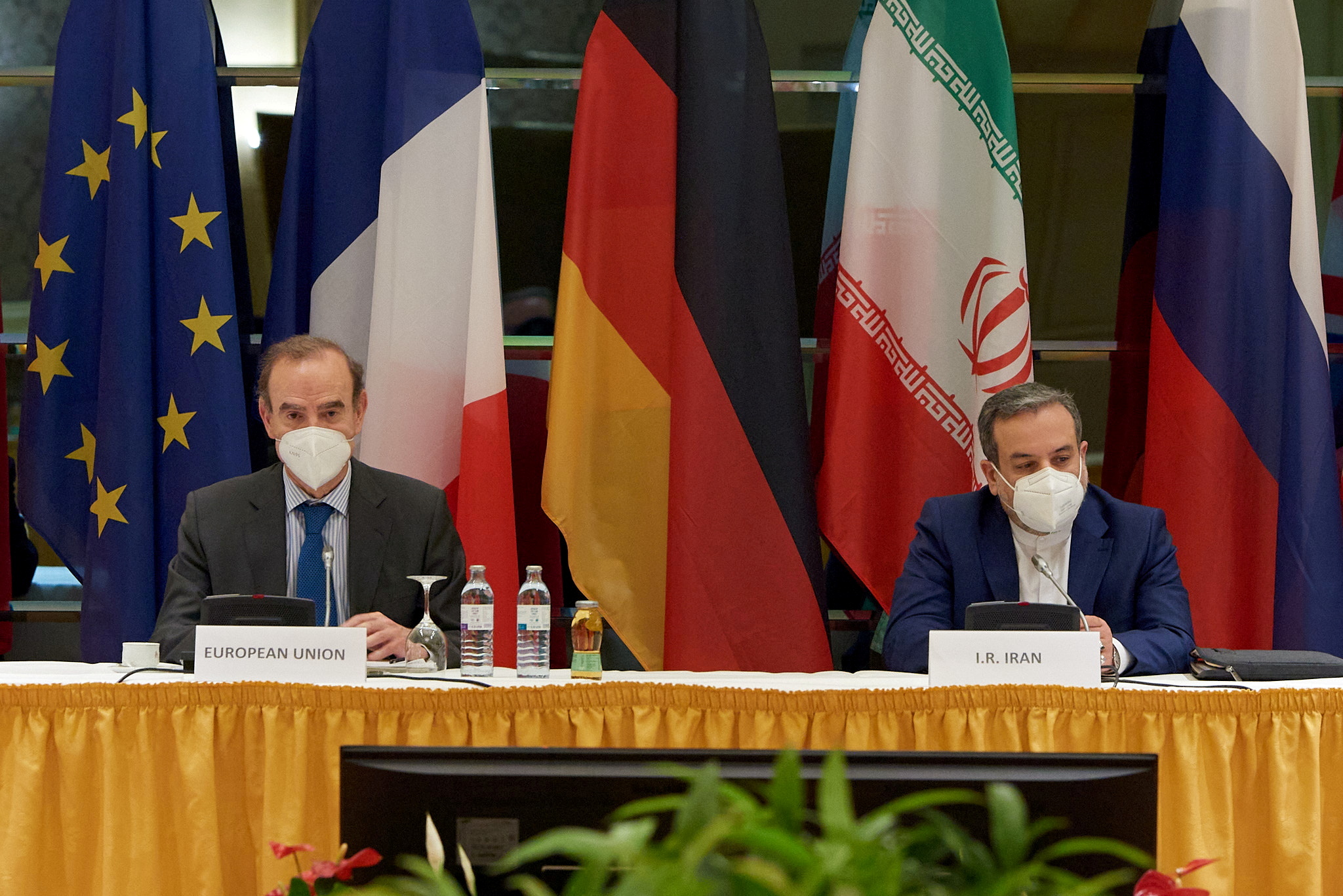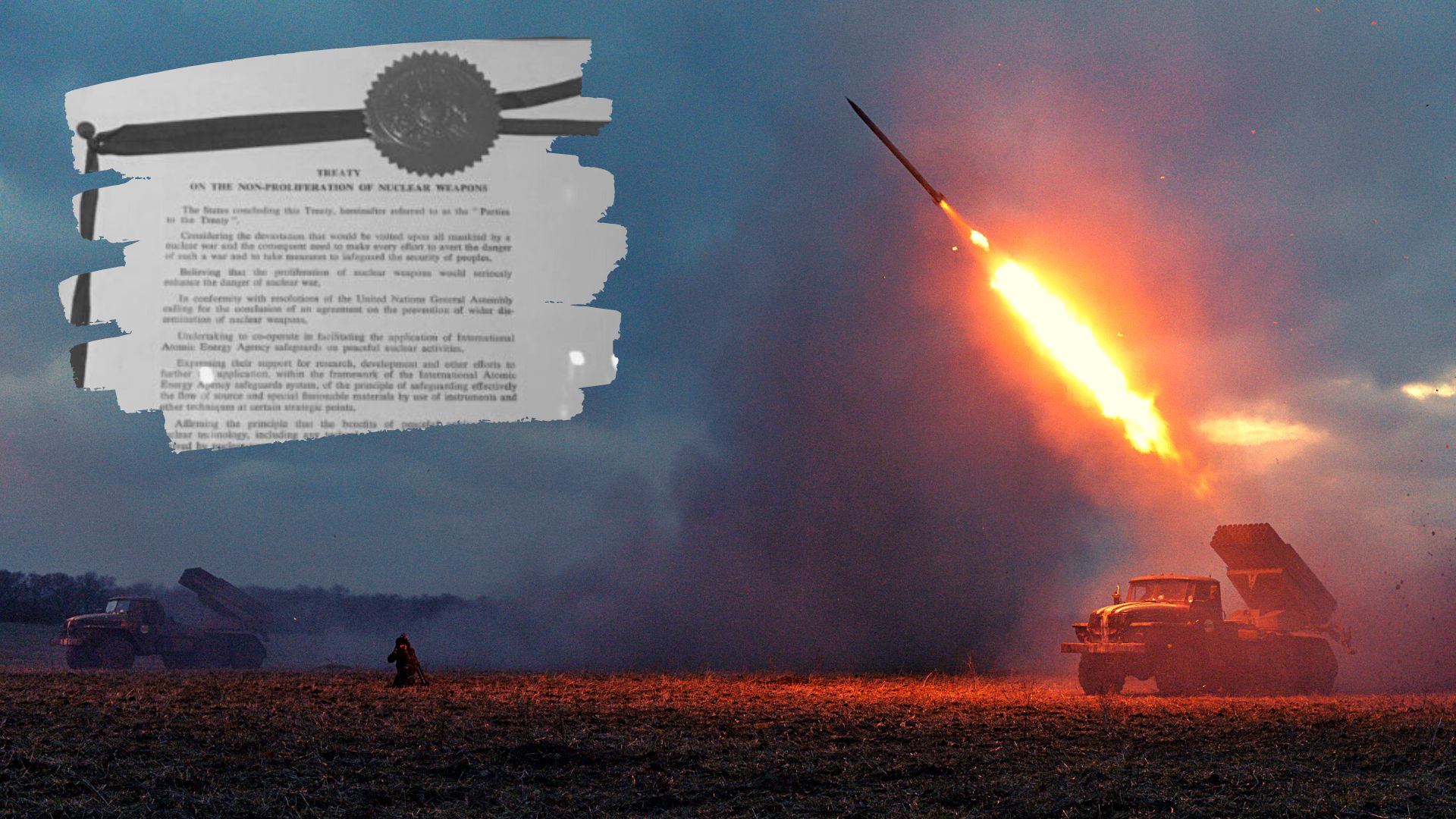Publications
INSS Insight No. 1627, August 2, 2022
The 10th Non-Proliferation Treaty (NPT) Review Conference (RevCon) in New York on August 1-26, 2022, convenes following a number of delays caused by the COVID-19 pandemic. The conference will mark two important milestones in the efforts to prevent the proliferation of nuclear weapons on the way to their total elimination: 50 years since the NPT entered into force, and 25 years since it was extended for an indefinite period. The Russian invasion of Ukraine, accompanied by gross violations of the treaty and the world order, represents a severe blow to the treaty. Also overshadowing the conference is the deadlock in negotiations between the major powers and Iran on a renewal of the nuclear agreement. In an effort to preserve the NPT, the signatory nations should issue a joint statement affirming the norms underlying it. In the current difficult international situation, however, the conference participants will find it difficult to reach a consensus on a final document, i.e., to conclude the conference successfully.
The Tenth Review Conference of the Parties to the Treaty on the Non-Proliferation of Nuclear Weapons (RevCon) is currently convening in New York amidst the most complex international situation since the end of the Cold War. The source of this difficulty is the tension between the United States and China and Russia, with the latter two powers challenging the US-led international order. They strive to shape a new multi-polar order that will take into account several developments:
- The rise in the status and influence of China and India;
- The development of new technologies and defense systems that further undermine the already fragile strategic stability;
- The collapse of the architecture of arms control agreements between the United States and Russia;
- The nuclear and conventional arms race between the United States and China and Russia, which seek to compensate for what they regard as strategic inferiority;
- Iran's continued pursuit of a military nuclear option, with a diplomatic effort underway to bring the United States and Iran back to the 2015 nuclear agreement, from which the United States withdrew in 2018;
- North Korea's efforts to expand its arsenals of nuclear weapons and missiles.
Beyond this difficult situation, which already stands to make it difficult for the conference participants to reach a consensus on a final document (at the preceding conference in 2015, a similar effort failed), the Russian invasion of Ukraine has created a global multi-party crisis in general – and affected the NPT in particular – as well as challenges that threaten the future of the nuclear regime.
The NPT is based on three pillars: total elimination of nuclear weapons, prevention of nuclear weapons proliferation, and promotion of the use of nuclear energy for peaceful purposes. Russia's threat to use nuclear weapons during the war Ukraine, a non-nuclear NPT signatory country, in breach of the "negative security assurances" given by the nuclear states to the non-nuclear states, has dealt a critical blow to the first pillar. Russia also violated the 1994 Budapest Memorandum on Security Assurances, in which it undertook, in exchange for Ukraine transferring the nuclear weapons on its territory to Russia, to uphold Ukraine's territorial integrity. As for the second pillar, the Russian invasion of Ukraine is liable to motivate states that feel threatened to consider acquiring nuclear weapons in order to deter aggression against them. Regarding the third pillar, the case of Ukraine's many nuclear power reactors and nuclear facilities, which now constitute a safety risk because of the Russian invasion, may well deter states from developing civilian nuclear energy.
Is the damage inflicted by Russia on the principles and norms of the treaty irreversible? Time will tell. As of now, however, the fact that many countries have not condemned Russia unequivocally does not augur well for the chances of achieving a final document at the conference. Nor does it bode well for the future of the world order, which in theory is based on a complete ban on the use of force as a means to achieve national interests. Furthermore, in the framework of the conference discussions, Russia is expected to raise the issue of the trilateral security pact between Australia, the United Kingdom, and the United States (AUKUS) for the use of nuclear energy for non-peaceful uses – nuclear-powered submarines.
In addition to the shadow cast by the Russian aggression, the conference has a number of controversial issues on its agenda. In an effort to avoid repeating the failure of the preceding conference, when the question of a nuclear-free Middle East was a subject of dispute, a proposal has been made, although it is still unclear whether it will gain support, to settle for a number of summary documents on matters on which a common denominator, however narrow, can be found, instead of a single final document.
The issue of Article VI: At all nine previous RevCons, the principal bone of contention was Article VI of the NPT, which calls on the member states to take "effective measures relating to cessation of the nuclear arms race at an early date and to nuclear disarmament, and on a treaty on general and complete disarmament under strict and effective international control." As part of the efforts to implement this Article, plans of action with specific targets were adopted at previous RevCons. The dispute involves the political commitments by the nuclear weapons states. In those states' view, these commitments should be examined in the context of circumstances, even though it is obvious that these commitments do not have the same force as the articles of the treaty itself. The United States holds that instead of a "theological" discussion, a pragmatic approach should be taken. Every proposal should be judged on its merits, thereby facilitating the adoption of a new plan of action. The non-nuclear states, however, believe that the nuclear states (mainly the United States and Russia, who have the largest nuclear arsenals) are not contributing enough to implement the "deal" whereby the non-nuclear states undertook to refrain from developing nuclear weapons in exchange for the nuclear states dismantling their nuclear arsenals as quickly as possible. Instead of disarmament, there has been a process of modernization of nuclear weapons by the United States, Russia, and China (which has also enhanced its nuclear arsenal).
In an attempt to deflect some of this criticism, the United States and Russia decided to extend the New Strategic Arms Reduction Treaty (New START), and to ratify the joint statement by the five nuclear weapons states that "a nuclear war cannot be won and must never be fought." Prior to the Russian invasion of Ukraine, the United States and Russia agreed to renew talks on strategic stability in order to demonstrate their determination to act on disarmament. The war in Ukraine, however, halted this dialogue, and no resumption is expected in the near future. China did not respond to United States proposals for similar bilateral talks between them on the grounds that their respective arsenals were numerically asymmetric, and likewise rejected a Russian proposal to join the talks with the United States. The disputes between the camps will likely continue in the current conference. The United States will probably propose focusing efforts on measures that will help reduce the risk of a nuclear war, but it is doubtful whether a proposal along these lines will be acceptable to China and Russia.
Nuclear energy for peaceful uses: The climate crisis and the need for an interim solution, pending the conversion to clean energy, has put the use of nuclear energy (which emits almost no greenhouse gases) back on the agenda. In addition to the "ideological" question in a number of Western states about the legitimacy of using nuclear energy at all, construction of reactors is a financial, technological, and safety challenge that many states are unable to meet. As part of the "deal" between them, nuclear states are supposed to assist states wishing to construct reactors with a significant contribution to the project, thereby furthering the effort to combat the climate crisis. At the current conference, the discussion of this question will be overshadowed by the Russian invasion of Ukraine, whose civilian reactors and facilities are situated in territories that have been attacked or overtaken in the war. Presumably states with reactors on their territory will demand security guarantees.
Iran: Iran's violations of clauses in the nuclear agreement brought it to the point where it is now able to break out to a bomb within a short time. Presumably the deadlock in the diplomatic effort to reach agreement between the United States and Iran and enable the United States to return to the agreement and put an end to these Iranian violations will be discussed. The absence of an agreement will not determine the fate of the RevCon, but failure in the effort to renew the nuclear agreement is liable to have negative ramifications for the efforts to prevent nuclear proliferation. In addition, as a party to the treaty, Iran is able to prevent consensus on any conference summary text that it finds unacceptable.

A nuclear-free Middle East: Since 1995, when the RevCon adopted a resolution on a nuclear-free Middle East and action to implement the resolution, the subject has been on the agenda of subsequent RevCons. Lack of agreement between the United States and Egypt (which leads the Arab effort on the issue) on a summary declaration on the matter led to a crisis and an end to the last RevCon without a final document. Following a 2018 UN resolution on an annual meeting of a conference to discuss preparation of a treaty for establishing a nuclear-free zone in the Middle East, however, it can be assumed that the issue will not arouse great contention, and that a formula will be found acceptable to both the United States and the Arab states.
The Israeli aspect: Israel (which will not send an observer) is mentioned repeatedly at the NPT RevCons. Presumably the issue of Israel will be raised for discussion in the context of a nuclear-free Middle East, together with a recurring call for it to join the NPT and put its facilities under the International Atomic Energy Agency (IAEA) safeguards.
The Treaty on the Prohibition of Nuclear Weapons (TPNW): This treaty was formulated and entered into force in January 2021 in response to the dissatisfaction of non-nuclear states with progress toward implementation of Article VI of the NPT. Eighty-six countries have signed this treaty. The five nuclear weapons states and their cohorts, who oppose this treaty, argue that it undermines the NPT and does not supplement it, as its supporters assert. According to its supporters, this treaty creates a mechanism for implementation of Article VI.
In conclusion, the 50th anniversary of the NPT is a milestone in the international effort to prevent nuclear proliferation and to eliminate nuclear weapons. The treaty is part of the post-WWII world order, which has universal support. The Russian invasion of Ukraine and the gross violations of the treaty, and beyond that, of the world order, are a severe blow to the treaty. In response, and in an effort to preserve the treaty, the signatories should agree on a formula for a final document of the RevCon that will reaffirm the norms underlying the treaty, without explicitly mentioning Russia.



